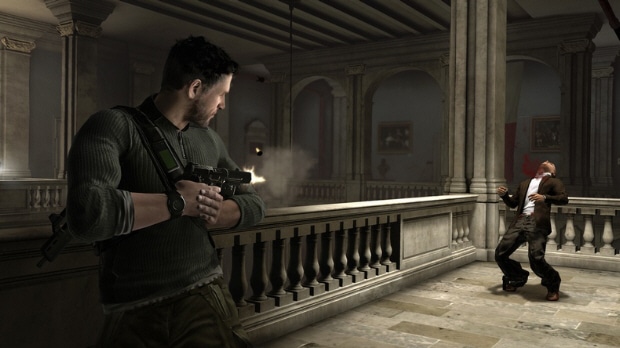Story v Franchise v Gameplay
Posted: Saturday, March 20, 2010 by J-Russ in
0
So as my heart beat with anticipation, I downloaded the demo of Splinter Cell Conviction the other day. Now I say this because in the post, I would like to talk about the franchise of a game vs. the gameplay vs the story. I will use the example of Splinter Cell to explain.
Splinter Cell at its core is a stealth game. Sam fisher is the main character and he is trained to slip into a target and slip out, leaving minimal amount of damage and bodies behind. Shadows are your friend in older Splinter Cell games (the original through Double agent shall be grouped as "old") and you move very slowly and deliberately. You can choose to knock out enemies or kill them and you rarely ever fire a bullet. The game play works and people love the franchise. But lets look at the new one.
The new Splinter Cell is fantastic. From a gameplay perspective, this game works. The gameplay is amazing and I really feel like a predator. When playing you always feel like you have the edge and that you decide your own destiny. When clearing out a room it can be devastating if done correctly. Enemies have no idea what is happening until they lie dead on the floor, shot by a "shadow." The game, just looking at the demo so far, seems to have really delivered. But, from a franchise view, many can say it hasn't.
SC CA is set up to so that you have the power to kill everybody in a room. The basic idea is that you plan and attack. In the older installments, you could beat entire levels without knocking out more then two people. Also gone is the knock out and kill buttons. Every time you attack someone your aim is to kill. There is only one melee button. You cannot hide bodies or OCP a light either. From a franchise view, some might say this game sucks, but from gameplay there are little to no issues to be found. Now, the third view: story.
Following the SC story, Sam is not working for Third Echelon anymore. He has no reason not to kill. There is no body governing his actions except him. It makes sense for him to leave a room full of dead bodies behind. He is trying to find his daughter's killer and nothing is going to stop him. Why should I sneak into a room and avoid everyone when I can kill all of them for what they did? The story has developed in a logical way and the gameplay reflects that. Looking from this aspect, the game once again puts its self in a positive light.
The ultimate question is how much of each goes into each game. I would say there should be an equality between all three. Either way a video game reviewer should be aware of these three views when looking at games.



